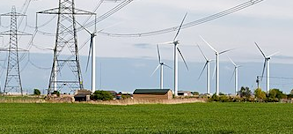The 2025 local elections were resoundingly won by Reform UK. It won many more seats than any other party, and became the largest party on seventeen of the 23 councils. This raises an obvious question – Why are people voting for Reform UK? Any why are they turning particularly against the two main parties of Labour and the Conservatives?
The answer lies in a deepening disconnect between Westminster and the wider public. The established parties are failing large parts of the electorate in two different ways. Firstly, they are not successfully addressing the electorate's priorities. And secondly, the established politicians' are spending time and money on issues which the public are mostly indifferent or hostile to.
Let's start by looking at the electorate's priorities. When asked what are the main issues facing the country, the public gives three key issues. Starting with most important, these are: the economy, immigration and asylum, and health. (Source: YouGov)

James Carville's memorable phrase reminds us of the British public's top priority. The economy remains the dominant concern for the British public, with around a half of people identifying it as one of the most important issues facing the country.
And no wonder. UK economic growth per head has averaged just 0.4pc annually since 2007 (source World Bank). That's less than half of one per cent per year. Growth should be around 2-3 per cent each year, so this weak figure indicates an economy which is basically stagnant. People are not getting better off, and they have noticed.
But taxes have kept going up. At the end of John Major's government in 1997, taxes made up 29.6pc of GDP. That has now risen to 36.3pc of the whole economy (source OBR). In other words, taxes have gone up by over one fifth.
After years of low economic growth, high taxes and inflation, it's understandable that the public's confidence in the UK's economic direction has eroded.
But the established parties seem to have no answer to this most important question. Some analysts blame the prolonged low interest-rate policy from the central bankers since 2008. This may have destroyed productivity growth by removing the incentives for productive investment. Other economists note that high taxes and increased business regulation are rarely associated with strong economic growth.
While the economic establishment seems trapped in the post-Thatcher Blairite consensus, people are looking for alternatives. That is not to say that Reform UK has a detailed and credible economic policy of its own – it doesn't – but it is seen as different from the failed consensus.

The latest data shows that net migration, the number of people coming to the UK minus the number leaving, was 728,000 for the year ending June 2024. This compares with 252,000 people a decade earlier (source ONS). In other words, net migration has nearly tripled in ten years.
Immigration can make the country wealthier, but low-skilled immigrants can be a net drain on the economy, costing £150,000 each over their working lives (source OBR, p108). Lower skilled immigrants can also depress the wages of lower-skilled Britons, among whom Reform UK is particularly popular.
Immigrants with poor English language skills can also damage social cohesion, which can worry many people.
Neither of the established parties seems able to reduce the numbers. Although Boris Johnson promised to 'take back control', he used his post-Brexit powers to increase net migration rather than decrease it. Labour is also naturally inclined to welcome immigration and has done little to address it before their local election losses in May 2025.
Sir Keir Starmer's party has been ruffled by the surge of Reform support and is now pledging new measures to tighten immigration and bring down net migration. Although Starmer said the UK was at risk of becoming an "island of strangers", his government has not set any target or cap on net migration.
Many voters think Reform UK is the party to handle this issue, even if half of people are unsure that any party can (source YouGov). Only 16pc of voters think either Labour or the Conservatives is the best party on this issue, but 27pc support Reform's approach.

Most Britons get their health care from the NHS, and the NHS is in trouble. Spending is up but performance is poor. Spending has risen 2.3pc a year in real terms over the last eight years (source King's Fund) but productivity is still below pre-pandemic levels (source ONS), and waiting times are longer (source IFS).
Long waiting times, recruitment shortages, and backlogs in routine care have become the norm rather than the exception. Patients are struggling to access GPs, emergency services are overstretched, and frontline workers are under relentless strain.
Electoral Calculus conducted a poll on the NHS last December. This revealed that most Britons agree that the state of the NHS is poor, with a total of 65pc saying it is bad, only 14pc saying it's good, and only a quarter of people think it will improve over the next four years.
Over half of voters (56pc) think the NHS should be radically changed, including 69pc of Reform UK voters. Despite the fact that 25pc of Britons believe the NHS has no chance of improvement under any government, there is practically no support for an abolition of the system, with only 1pc of the population supporting such a measure.
Reform leader Nigel Farage has raised the prospect of alternative funding models for British health care, saying we need to 'fundamentally rethink the way we fund and organise the NHS', while keeping 'free care at the point of delivery'. That position is consistent with majority popular opinion.
Health care is another issue where the two established parties have overseen decline and failure. The public want radical change, but to keep the NHS. Reform are promising that to them.
The remarkable growth of radical left ideas has been a feature of recent years across the English-speaking world. Core hard-left ideals of an anti-capitalist and anti-Western revolution in society have been joined by pro-transgender, strict environmental, anti-racist, and anti-colonial narratives. This so-called 'authoritarian left' often wishes to censor opposing voices and can appear lukewarm about democracy, while trying to undermine the history and society of its own country(s).
But these ideas have been remarkably successful in persuading people in both of the established parties, as well as many academics, lawyers and business people.
The only group who does not seem wholly persuaded are the voting public.
On many of these issues, the public is either indifferent or hostile to the radical left position. They feel the politicians' agenda is very different from their own, and this is another 'push factor' away from the established parties.
Let's have a look at two key issues which reveal this disconnect: transgenderism and climate change environmentalism.
(Language note: 'Woke' was originally a term used by the hard left to describe themselves, but has now been used as a pejorative term by their opponents. In turn, the radical left have described counter-revolutionary pushback as 'culture wars'. We will use neither term.)

The left were often loudest in their maximalist demands for changes in society to accommodate transgender people. Whilst the public generally have support and understanding for transgender people, the left demanded much more: medical treatment for children, weakening of women's rights, pronouns and language police.
Following the Supreme Court's ruling in April 2025 that transgender women are not women under the Equality Act, we conducted a transgender poll for the Daily Telegraph to see what the public thinks.
A clear majority (59pc) agree with the Supreme Court that a transgender woman is not legally a woman. The Supreme Court judgement allows women-only spaces to lawfully exclude transwomen. The public agree that this should should apply to women's sports (58pc), prisons (52pc), and toilets (51pc), with further support for exclusion from women-only gyms (44pc) and rape crisis centres (41pc).Almost half (47pc) see the ruling as a win for women's safety and equality. J.K. Rowling, a prominent defender of women-only spaces, is also viewed more favourably than not, with 47pc backing her stance compared to 18pc who oppose it.
Politically, the ruling is strongly supported by Conservative (83pc) and Reform UK (88pc) voters. Labour voters are more divided, 42pc in favour and 32pc against, leaving Keir Starmer navigating a party split between his left-leaning activists and a public who are not convinced.
Again this provides a straightforward open goal for Reform. The voters want a moderate, not extreme, policy on transgender, and the two main parties have been hesitant and fearful to reflect popular opinion.

The British public are deeply concerned about climate change, and are keen for action to be taken to address it. But they are sceptical about whether the government's targets can be achieved, and lukewarm about the costs involved for them personally.
In an Electoral Calculus poll on net zero for the Property Chronicle, a majority of Britons (56pc) said that reaching net-zero in the UK by 2050 was 'probably unachievable'. Only one fifth said it was probably achievable.
That's consistent with the evidence which shows that 74pc of British energy still comes from non-renewables, and is only declining by about 1pc per year (source Dept of Energy). If that trend continues, it would still leave us taking half of our energy from non-renewables by 2050.
The majority of people do not think a ban on new petrol and diesel cars and a ban on new gas boilers by 2035 are achievable either. Most Britons with a petrol/diesel car or a gas boiler say they are unlikely to switch to zero-emissions alternatives in the future.
Conservative and Reform voters are overall more sceptical of the net-zero targets and are more opposed to switching to zero-emission alternatives. A whopping 85pc of Reform voters think net-zero is unachievable by 2050.
The 2050 target was set by Conservative PM Theresa May, and has been embraced by the Labour government and its energy secretary Ed Miliband. Both the big old parties have been committed to this target, although cracks are beginning to appear. Kemi Badenoch has said net-zero by 2050 is "impossible" and Labour have recently cancelled the planned ban on gas boiler sales.
By contrast, Reform have promised to scrap the net-zero target, as well as subsidies for renewable energy. Again, they are more in tune with the British public on this.
Reform UK's appeal lies in its opposition to the political establishment. That establishment has failed for years to address voters' real concerns on the economy, immigration and health care, while being distracted by the left's agenda of identity politics and social transformation.
Reform's message taps into growing frustration with those failures of the political class. For many voters, the party reflects a desire to repair Britain and reject the leftist revolution.
But the party has not yet shown a detailed set of policies which could achieve this. If it gains power, it might be faced with the same difficulties of delivery that have bedevilled Labour and the Conservatives. Being against 'lefty political correctness' is one thing, but fixing the economy is quite another. Reform's plans to cut taxes and raise spending are hardly credible in the context of dangerously high public debt. And their plans for the NHS are charitably described as not fully formed.
Whether Reform's resonance with the public will translate into lasting support on the doorsteps and, ultimately, at the ballot box remains to be seen. However, it's a signal that disillusionment with Labour and the Conservatives is far from a fringe concern.